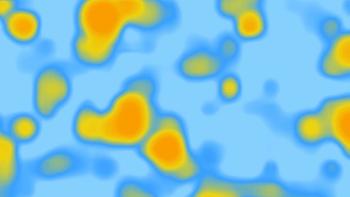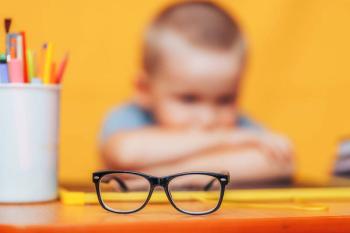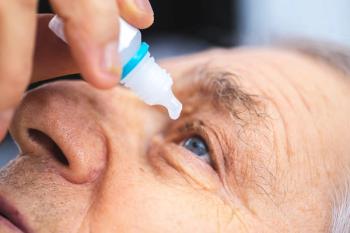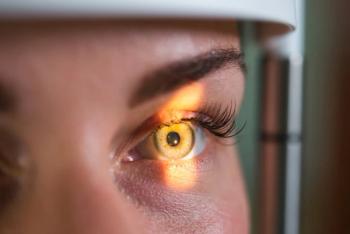
Patients with dry eye experience worse sleep quality
Analysis showed that patients with dry eye had “worse sleep quality than the healthy population," which could be due to incomplete eyelid closure, eye discomfort, and mental stress.
Patients with
Investigators, led by first author Yixuan Gu, PhD, spell out how sleep is disrupted in this patient population. Gu is from the Beijing Institute of Ophthalmology, Beijing Tongren Hospital, Beijing Ophthalmology & Visual Sciences Key Laboratory, Beijing Tongren Eye Center, Capital Medical University, Beijing.
“Poor sleep quality in dry eye patients may be related to incomplete eyelid closure, eye discomfort, and mental stress.2 The dry mouth symptoms of patients with Sjogren’s syndrome, which require them to frequently get up at night to drink water or consume more fluids before sleep, may also be one of the culprits causing poor sleep quality .… emerging studies have indicated that dry eye was associated with the risk of sleep disorder.3,4
Due to lifestyle changes and the dramatic increase in the population with sleep disorders, the authors believe that identifying potentially modifiable risk factors is clinically important for the primary prevention of sleep disorders.
In their meta-analysis, the authors searched for observational studies published before April 2023 with the goal of identifying modifiable risk factors. The literature search identified 21 studies that included over 419,000 individuals. The information collected included the study author(s), country, study type, data collection period, publication year, type of dry eye, number of participants in the dry eye and control subjects, age, female proportion, and sleep-related judgment criteria.
The analysis showed that patients with dry eye had “worse sleep quality than the healthy population, with poorer subjective sleep quality, longer sleep latency, and a higher risk of unhealthy sleep duration such as insufficient sleep or excessive sleep,” the investigators reported.
Specifically, the Pittsburgh Sleep Quality Index (PSQI) scores of the dry eye subjects were significantly higher than those of the control subjects (weighted mean difference, 1.78, 95% confidence interval [CI], 1.06, 2.50, P < 0.001).
The patients with dry eye had higher scores than the control subjects in sleep quality, sleep latency, and sleep disturbance in the PSQI. No differences between the 2 groups were seen regarding sleep duration, sleep efficiency, daytime dysfunction, and sleep medication scores.
The investigators found that the patients with dry eye were at significantly higher risks of sleep disorders, insufficient sleep, and excessive sleepiness (P < 0.001 for all comparisons).
Gu and colleagues concluded, “Our meta-analysis suggests that individuals with dry eye have a worse sleep quality than the healthy population, with poorer subjective sleep quality, longer sleep latency, and higher risk of unhealthy sleep duration such as insufficient sleep or excessive sleepiness.”
They noted, however, that there is insufficient evidence to establish a causal relationship and related mechanisms between dry eye and sleep disorder and called for more large-scale prospective studies to provide more assistance in patient management and treatment.
References:
Gu Y, Cao K,Li A, et al. Association between sleep quality and dry eye disease: a literature review and meta-analysis. BMC Ophthalmol. 2024;24:152;
https://doi.org/10.1186/s12886-024-03416-7 An Y, Kim H. Sleep disorders, mental health, and dry eye disease in South Korea. Sci Rep. 2022;12:11046.
Kawashima M, Uchino M, Yokoi N, et al. The association of sleep quality with dry eye disease: the Osaka study. Clin Ophthalmol (Auckland NZ). 2016;10:1015–21.
Au NH, Mather R, To A, Malvankar-Mehta MS. Sleep outcomes associated with dry eye disease: a systematic review and meta-analysis. Can J Ophthalmol. 2019;54:180–9.
Newsletter
Want more insights like this? Subscribe to Optometry Times and get clinical pearls and practice tips delivered straight to your inbox.








































